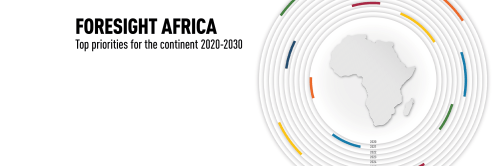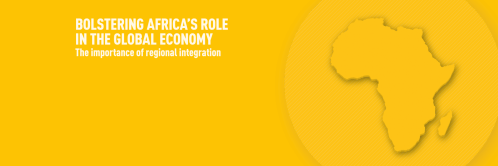Last week, the Africa Growth Initiative at Brookings launched its annual Foresight Africa publication. This year’s special edition highlights the accomplishments of past years and strategies for the upcoming decade, 2020-2030. The sixth chapter, Bolstering Africa’s role in the global economy: The importance of regional integration, explores the new commercial and diplomatic opportunities Africa is creating as it empowers itself from within.
In her essay, Vera Songwe, executive secretary at the United Nations Economic Commission for Africa and nonresident senior fellow at Brookings, describes the importance of innovation for Africa to capitalize on the gains of the African Continental Free Trade Agreement (AfCFTA) and achieve economic diversification. She argues that while innovation is an important component of export diversification, current policy frameworks on the continent do not adequately protect or encourage innovation.
Indeed, as shown in Figure 6.5 from the report, Africa lags globally in its number of registered patents, registering only 1,330 patents by residents in 2017, compared to a high of 592,508 in Asia. Furthermore, in Africa, patents are more frequently registered by nonresidents than by residents.
The high number of patents registered by nonresidents rather than by residents could be a result of the prohibitively high costs of patent registration in Africa. Figure 6.6 shows that Africa has some of the highest patent registration fees in the world: It is more expensive, for example, to register a patent in Côte d’Ivoire, Kenya, or Senegal than it is in Canada, the United Kingdom, or Japan. In GDP per capita terms, fees are even more prohibitive: For example, Kenya’s patent registration fees are 13.3 times its GDP per capita, while in Germany, fees are only 0.3 times the GDP per capita. These costs create an avoidably high barrier to innovation. As Songwe argues, policies to encourage and protect intellectual property and ease barriers to patent registration are a fundamental prerequisite for the continent to meet its full potential under the AfCFTA.







Commentary
Figure of the week: Patent policies and their effects on African innovation
January 23, 2020